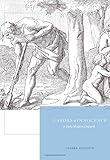Labors of Innocence in Early Modern England / Joanna Picciotto.
Material type: TextPublisher: Cambridge, MA : Harvard University Press, [2022]Copyright date: ©2010Description: 1 online resource (880 p.)Content type:
TextPublisher: Cambridge, MA : Harvard University Press, [2022]Copyright date: ©2010Description: 1 online resource (880 p.)Content type: - 9780674056770
- English literature -- Early modern, 1500-1700 -- History and criticism
- Intellectuals in literature
- Labor in literature
- Literature and science -- England -- History -- 17th century
- Religion and science -- England -- History -- 17th century
- Science -- England -- History -- 17th century
- LITERARY CRITICISM / European / English, Irish, Scottish, Welsh
- 820.9/004 22
- PR438.I67 P53 2010eb
- online - DeGruyter
| Item type | Current library | Call number | URL | Status | Notes | Barcode | |
|---|---|---|---|---|---|---|---|
 eBook
eBook
|
Biblioteca "Angelicum" Pont. Univ. S.Tommaso d'Aquino Nuvola online | online - DeGruyter (Browse shelf(Opens below)) | Online access | Not for loan (Accesso limitato) | Accesso per gli utenti autorizzati / Access for authorized users | (dgr)9780674056770 |
Frontmatter -- CONTENTS -- Introduction -- I. CONTEXTS -- 1. Digging up the Hortus Conclusus -- 2. A Union of Eyes and Hands -- 3. The Productive Eye -- 4. The Culture of Curiosity -- II. TEXTS -- 5. Instruments of Truth -- 6. Milton and the Paradizable Reader -- 7. The Professional Observer -- Notes -- Bibliography -- Acknowledgments -- Index
restricted access online access with authorization star
http://purl.org/coar/access_right/c_16ec
In seventeenth-century England, intellectuals of all kinds discovered their idealized self-image in the Adam who investigated, named, and commanded the creatures. Reinvented as the agent of innocent curiosity, Adam was central to the project of redefining contemplation as a productive and public labor. It was by identifying with creation’s original sovereign, Joanna Picciotto argues, that early modern scientists, poets, and pamphleteers claimed authority as both workers and “public persons.” Tracking an ethos of imitatio Adami across a wide range of disciplines and devotions, Picciotto reveals how practical efforts to restore paradise generated the modern concept of objectivity and a novel understanding of the author as an agent of estranged perception. Finally, she shows how the effort to restore Adam as a working collective transformed the corpus mysticum into a public. Offering new readings of key texts by writers such as Robert Hooke, John Locke, Andrew Marvell, Joseph Addison, and most of all John Milton, Labors of Innocence in Early Modern England advances a new account of the relationship between Protestantism, experimental science, the public sphere, and intellectual labor itself.
Mode of access: Internet via World Wide Web.
In English.
Description based on online resource; title from PDF title page (publisher's Web site, viewed 29. Jun 2022)


